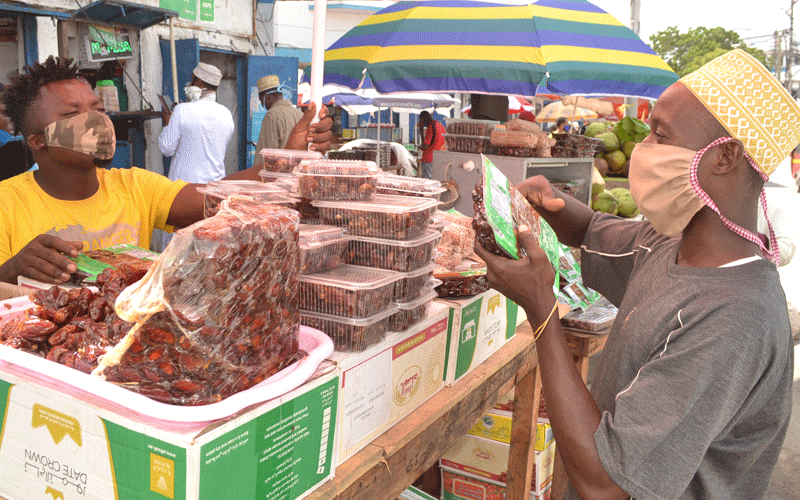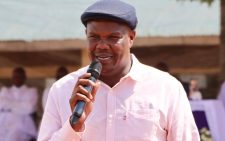Prepare for more coronavirus economic pain, experts warn

Seth Onyango @SethManex
Prolonged coronavirus shocks could portend more pain for Kenyans if warnings by a team of epidemiologists that the contagion will last more than two years turns out to be true.
Already, the virus has brought several sectors to a halt in the country as people keep away from workplaces, schools, stores and travel, with the government recording a dip in tax collections.
Consumer spending which amounts for roughly two-thirds of economic activity is also expected to remain dangerously low due to this depressed economy.
Considering the 1918 Spanish flu pandemic curve as a model, experts now suggest the virus will last between 18 and 24 months, pushing the global economy into a temporary deep freeze.
Economic cannibalism
Already, the World Economic Forum (WEF) has projected the April-June contraction will be on a scale never seen for decades, triggering what experts call economic cannibalism among poor nations who will look inwards despite little cushion within.
Investment Analyst Aly-Khan Satchu warns the worst is yet to come in Kenya, sentiments echoed by Dr David Ndii, a renown economist.
Diaspora remittances is already among the biggest casualty of the raging coronavirus outbreak, hurting Kenya’s much needed inbound cash flow from abroad.
“Diaspora remittances [which overtook FDI some years ago] blipped higher last month but we have to haircut this flow by up to 25 per cent).
Our people are resilient but remitting countries are entering a Great Depression, they will need to employ their own people first,” he told Business Hub in an interview.
“Our balance sheet is blown and has been Covid-ed. Tourism in my opinion is terminated through December 2021. Floriculture is not a need but a want and therefore it is highly unlikely to see a rebound for the foreseeable future.”
It comes even as Kenya continues to fight the locust invasion that has devastated vegetation in the country, risking our food security.
He cautioned against the government bid to skip interest payments on domestic debt were counter-intuitive asserting they are considering the “nuclear option.”
Ndii further cautioned the government against the move arguing it will send bad signal to the market.
“Government defaulted on parastatal bonds, now they are mooting deferring interest on bonds held by pension funds–another default. Who next?
And this by a government with a mountain of maturing debt it expects investors to roll-over? Go ahead guys, play with fire,” he said.
With coronavirus expected to last two years, Ndii opined the public policy imperative right now is to adapt three critical high contact sectors to Covid-19 risk: including food supply chain, health care and education.
Satchu said the government needs to look at an autarkic even ‘Juche’ model is Kenya is to brave the coronavirus.
“Make sure there is enough food on the table for every Kenyan and look at how it can provide subsistence for its citizens on an on-going basis,” he said.
World economy
In its recent forecasts, the International Monetary Fund said the world economy will suffer its worst year since the Great Depression of the 1930s.
Now, the Fund expects the global economy to shrink by three per cent this year far worse than the slump of 0.1 per cent recession record in 2008/9 financial crash.
“This is an unprecedented shock. We have shutdowns of important sectors of the economy.
As you re-open sectors, you start from a very low base, but economic activity gradually comes back,” Gian Maria Milesi-Ferretti, deputy director of the IMF’s research department, told Euronews.
The Center for Infectious Disease Research and Policy (CIDRAP) had told CNN that Covid-19 will not be neutralised until 60 to 70 per cent of the global population has been infected.
Satchu said, given the longevity of virus is at least 24 months, Kenya is in Wave 1 of a series of waves.
“I think Lebanon is a good precursor. We are headed into an unprecedented situation and a zombie like collapse is not as an extreme a prediction as it might sound.
The Government needs to get real quick. We need to bring our best talent together,” he added.














